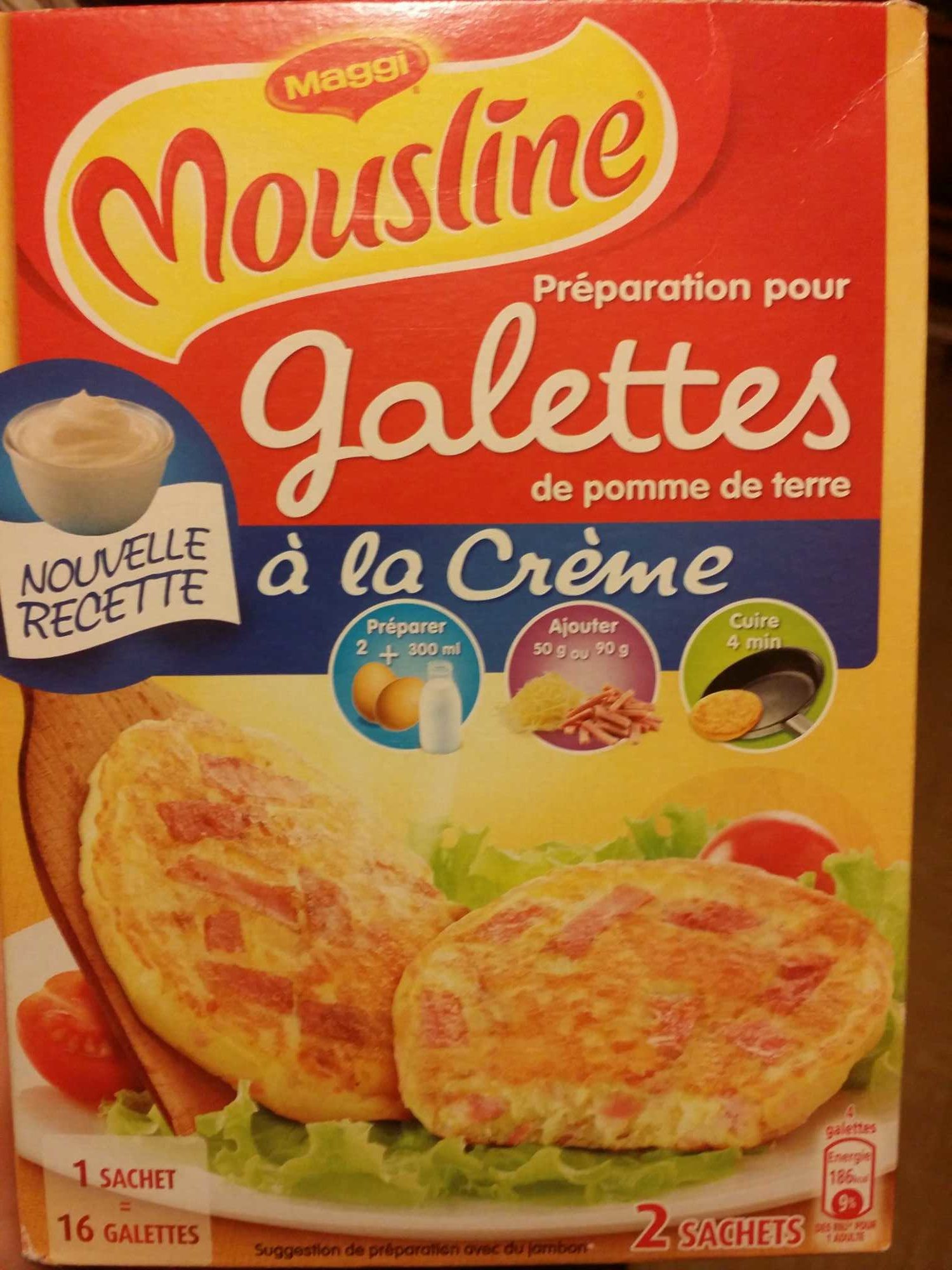Preparation pour galettes de pomme de terre - Mousline - 250 g (2 * 125 g)
This product page is not complete. You can help to complete it by editing it and adding more data from the photos we have, or by taking more photos using the app for Android or iPhone/iPad. Thank you!
×
Barcode: 7613033694905 (EAN / EAN-13)
Common name: Préparation pour Galettes de Pommes de Terre à la Crème
Quantity: 250 g (2 * 125 g)
Packaging: Plastic, Box, Cardboard
Brands: Mousline, Maggi, Nestlé
Categories: Meals, Dried products, Dried products to be rehydrated, Dried meals
Labels, certifications, awards: New recipe
Stores: Leclerc
Countries where sold: France
Matching with your preferences
Environment
Packaging
Transportation
Report a problem
Data sources
Product added on by openfoodfacts-contributors
Last edit of product page on by packbot.
Product page also edited by beniben, kiliweb, theosse, yuka.V3YxWklJTU5yTndtblAweDlBUG9vL1pQeUpLdUFFK3dEUGRBSUE9PQ.










